Monday, August 03, 2015 - 02:00 AM UTC
Trackpad brings you almost 300 pages of what should be the definitive books on Leopard 1's in Australian service. With ~800 photos and diagrams this should prove to be an excellent reference for the modeller as well as historian.
The first modern tank acquired by the Australian Army in the post-Second World War era was the Centurion, which began arriving in late 1951. The Centurion was a very formidable vehicle and was to remain in service for twenty-six years. Many were deployed operationally in South Vietnam from 1968 to 1971, where their firepower and armour undoubtedly helped in saving many Australian lives. By the early 1970s, however, the Centurions were becoming increasingly difficult to maintain in battle-worthy condition. A new, more modern tank would need to be ready for service with the RAAC before the end of the 1970s.
In 1974, following an exhaustive series of competitive trials between the M60A1 and Leopard 1A1, the Australian government confirmed the purchase of the Leopard AS1 – in essence, a Leopard 1A3 with a unique suite of modifications to suit Australian requirements. A total of 103 vehicles were acquired, including MBTs, Bridgelayers and Armoured Recovery Vehicles, with the first arriving in Australia in late 1976.
In March 2004, the decision was made to replace the Leopard with reconditioned US M1A1 Abrams. With the arrival of the Abrams in 2007, the Australian Leopards were withdrawn from service. Although never called upon to fire their guns in anger, they formed the armoured fist of the RAAC for thirty never-to-be-forgotten years.
This book covers all aspects of the Australian Leopard family with a thorough look at the initial trials, the tank’s introduction into service, technical problems, training exercises, maintenance and modifications. Each of the different variants and their capabilities are examined, as well as camouflage and markings, ammunition, crew dress, training equipment and the Leopard’s tactical and strategic mobility.
In 1974, following an exhaustive series of competitive trials between the M60A1 and Leopard 1A1, the Australian government confirmed the purchase of the Leopard AS1 – in essence, a Leopard 1A3 with a unique suite of modifications to suit Australian requirements. A total of 103 vehicles were acquired, including MBTs, Bridgelayers and Armoured Recovery Vehicles, with the first arriving in Australia in late 1976.
In March 2004, the decision was made to replace the Leopard with reconditioned US M1A1 Abrams. With the arrival of the Abrams in 2007, the Australian Leopards were withdrawn from service. Although never called upon to fire their guns in anger, they formed the armoured fist of the RAAC for thirty never-to-be-forgotten years.
This book covers all aspects of the Australian Leopard family with a thorough look at the initial trials, the tank’s introduction into service, technical problems, training exercises, maintenance and modifications. Each of the different variants and their capabilities are examined, as well as camouflage and markings, ammunition, crew dress, training equipment and the Leopard’s tactical and strategic mobility.
Click Star to Rate
3 readers have rated this story.
THIS STORY HAS BEEN READ 6,266 TIMES.
| Trackpad Publishing Reviews | MORE |
| Leopard 1 in Danish Service by Paul Truhe | of 1 ratings, 100% found this helpful | |
| Tough Truck! by Mario Matijasic | |
| Battlegroup Leopard by Paul Truhe | |
| Belgian JPK90 by Paul Truhe | of 1 ratings, 100% found this helpful | |
| Danish Leopard in Afghanistan by Darren Baker | |
| Belgian Army Leopard 1 by Darren Baker | |
| Leopard 1(BE) by Paul Truhe | |
| Belgian CVR(T) Family Part 2 by Paul Truhe | |
| Belgian CVR(T) Family Part 1 by Paul Truhe | |
| IDF Shermans M-50 and M-51 by Adie Roberts | |
| IDF Jeeps by Adie Roberts | |
| History of the IDF Artillery 2 by Adie Roberts | |
| History of the IDF Artillery 1 by Adie Roberts | |
| Danish Leopards in Helmand by Brian O'Donoghue | |
| Biber Leopard 1 Bridgelayer by Brian O'Donoghue | |




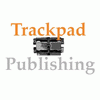
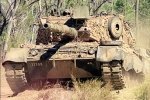
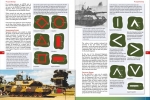
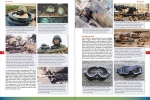
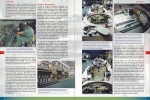
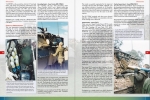
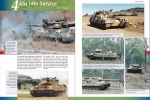



Comments